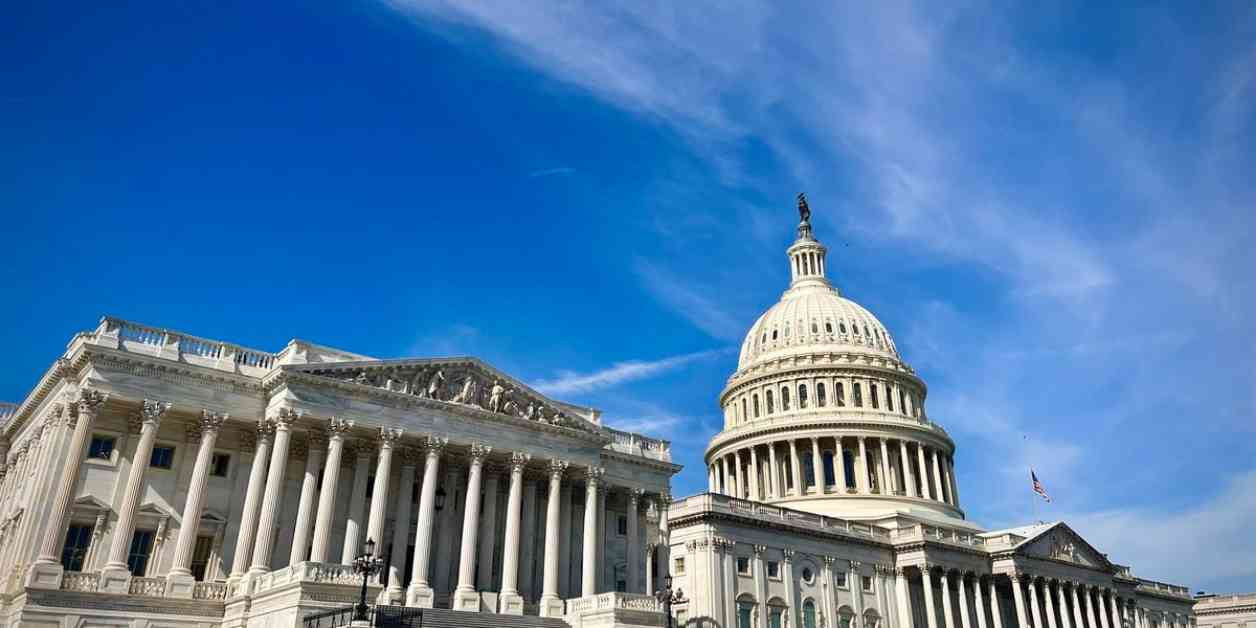Crypto Companies Lead Corporate Election Spending in 2024 Cycle
In a groundbreaking development, cryptocurrency companies have emerged as the dominant force in corporate political contributions during the 2024 election cycle. According to a recent report released by the corporate influence watchdog Public Citizen, nearly half of all corporate election spending can be attributed to crypto companies such as Ripple and Coinbase. The report, which was based on data provided by the government transparency group OpenSecrets, revealed that crypto companies have contributed a staggering $119 million out of a total of $248 million in corporate election spending so far.
The Rise of Crypto in Political Funding
The growing influence of crypto companies in the political arena has raised eyebrows and sparked discussions about the implications of their significant contributions. The report highlights that the majority of these donations have been channeled into pro-crypto super PACs like Fairshake, a non-partisan organization focused on supporting crypto-friendly candidates from both sides of the political spectrum while opposing those who hold skeptical views on cryptocurrencies.
Fairshake, one of the leading super PACs in this space, has raised a substantial $203 million, with $107.9 million coming directly from crypto companies. The remaining funds have been contributed by influential individuals within the tech and crypto industries, including notable figures such as the Winklevoss twins and Coinbase CEO Brian Armstrong. This influx of financial support from the crypto sector has positioned Fairshake as a significant player in shaping the political landscape in favor of cryptocurrencies.
Unprecedented Political Spending by Crypto Companies
Rick Claypool, the research director at Public Citizen and the author of the report, described the level of political spending by crypto companies as “unprecedented.” The report indicates that over the past three election cycles, crypto companies have directly contributed $129 million to political causes, accounting for 15% of all known corporate contributions since the landmark Citizens United v. Federal Election Commission ruling in 2010. This ruling granted corporations the right to make unlimited donations to candidates through PACs under the First Amendment.
Only the fossil fuel industry has surpassed crypto companies in terms of political spending since 2010, with a total of $162 million in donations to politicians who support fossil fuel interests. This data underscores the significant impact that crypto companies are having on the political landscape and raises questions about the potential influence they wield in shaping policy decisions.
Implications for the Future of Cryptocurrency Regulation
The surge in political spending by crypto companies has reignited debates about the regulation of cryptocurrencies and the influence of corporate interests on policymaking. As the industry continues to grow and gain mainstream acceptance, the role of crypto companies in political funding is likely to come under increased scrutiny.
With the rise of digital assets and blockchain technology, policymakers are faced with the challenge of balancing innovation and investor protection. The substantial financial backing from crypto companies could potentially sway political decisions in favor of regulatory frameworks that are conducive to the growth of the industry. This dynamic raises concerns about conflicts of interest and the need for transparency in the relationship between the crypto sector and government officials.
Subheadings
Challenges and Opportunities in Crypto Political FundingThe Intersection of Money and Politics in the Crypto IndustryTransparency and Accountability in Corporate Election Spending
Transparency and Accountability in Corporate Election Spending
Challenges and Opportunities in Crypto Political Funding
The unprecedented level of political spending by crypto companies presents both challenges and opportunities for the industry. On one hand, the financial support from prominent players in the crypto sector can help advance the interests of the industry and promote a regulatory environment that fosters innovation and growth. However, this influx of money also raises concerns about potential conflicts of interest and the influence of corporate entities on policymaking.
As the crypto industry becomes increasingly intertwined with the political landscape, stakeholders must navigate the complexities of political funding to ensure transparency and accountability. The rise of super PACs like Fairshake, which rely heavily on contributions from crypto companies, underscores the need for robust oversight mechanisms to prevent undue influence on the democratic process.
The Intersection of Money and Politics in the Crypto Industry
The intersection of money and politics in the crypto industry has sparked debates about the role of corporate interests in shaping policy decisions. With crypto companies emerging as major players in political funding, questions have been raised about the influence they wield in influencing regulatory outcomes. The close relationship between the tech and crypto industries and political candidates has blurred the lines between business interests and public policy.
The rise of super PACs funded by crypto companies highlights the evolving landscape of political fundraising and the need for greater transparency in corporate election spending. As the crypto industry continues to expand its presence in the political arena, stakeholders must grapple with the ethical implications of corporate contributions and the potential impact on democratic processes.
Transparency and Accountability in Corporate Election Spending
In light of the significant contributions from crypto companies to political causes, calls for greater transparency and accountability in corporate election spending have grown louder. The need for disclosure of financial backing and the sources of funding for super PACs has become a pressing concern as the influence of corporate entities on political decisions becomes more pronounced.
Public Citizen’s report sheds light on the scale of political spending by crypto companies and underscores the importance of transparency measures to safeguard the integrity of the electoral process. By promoting greater disclosure and accountability in corporate election spending, regulators can ensure that the interests of the public are protected and that democratic norms are upheld.
Conclusion
The dominance of crypto companies in corporate election spending during the 2024 cycle highlights the growing influence of the industry in shaping political outcomes. As the crypto sector continues to expand its presence in the political arena, stakeholders must grapple with the ethical implications of corporate contributions and the need for transparency in political fundraising. The intersection of money and politics in the crypto industry raises important questions about the impact of corporate interests on regulatory decisions and underscores the importance of accountability in the democratic process.














